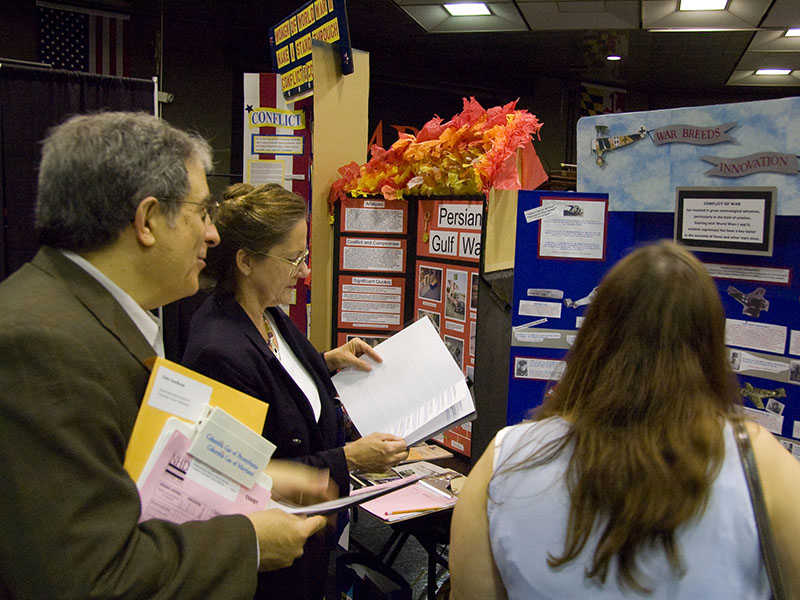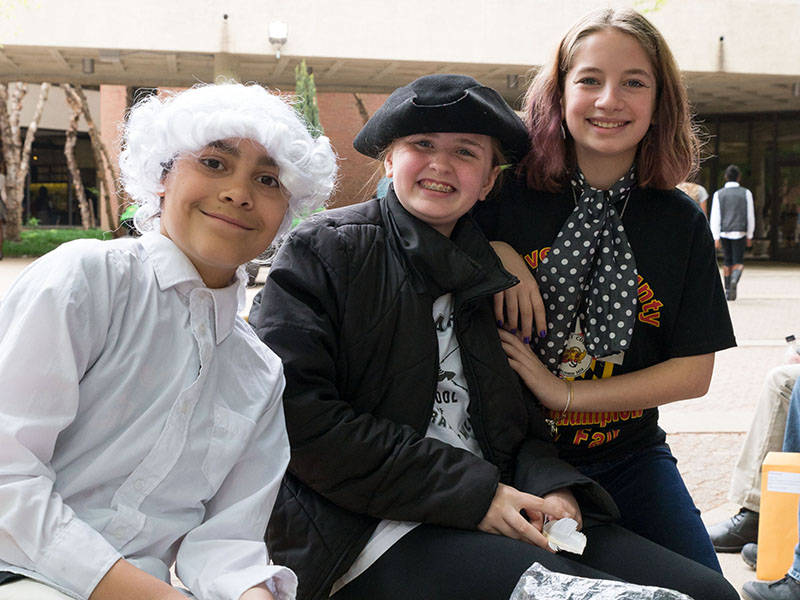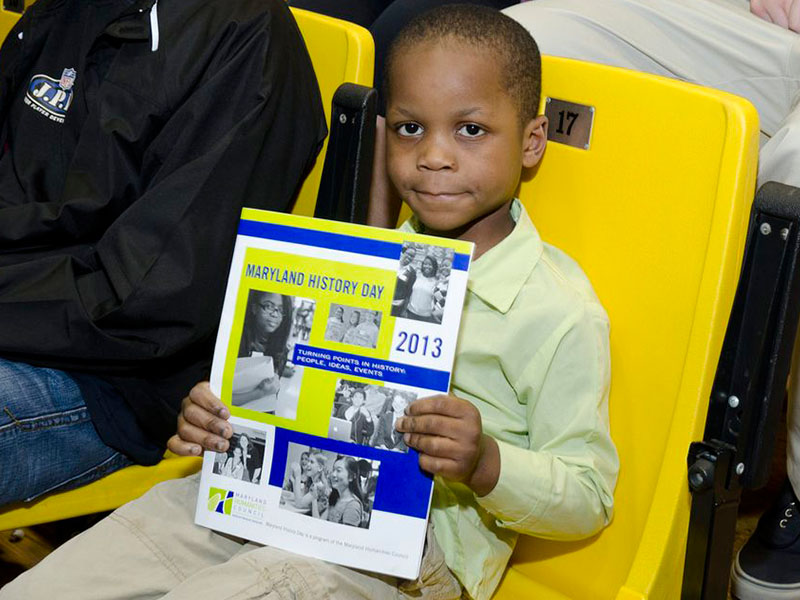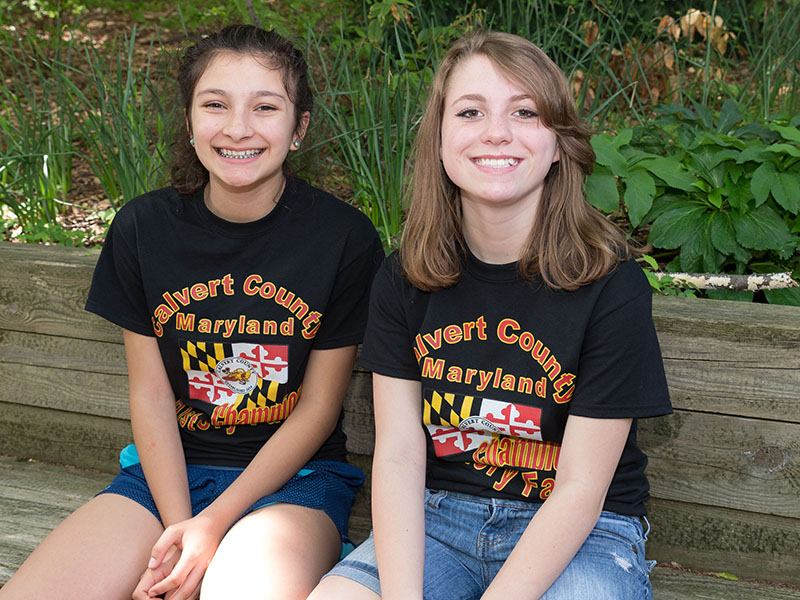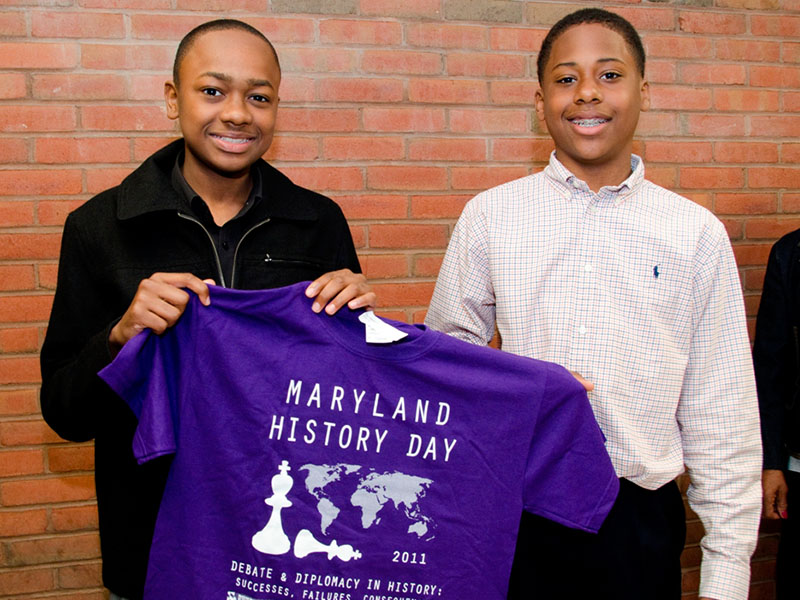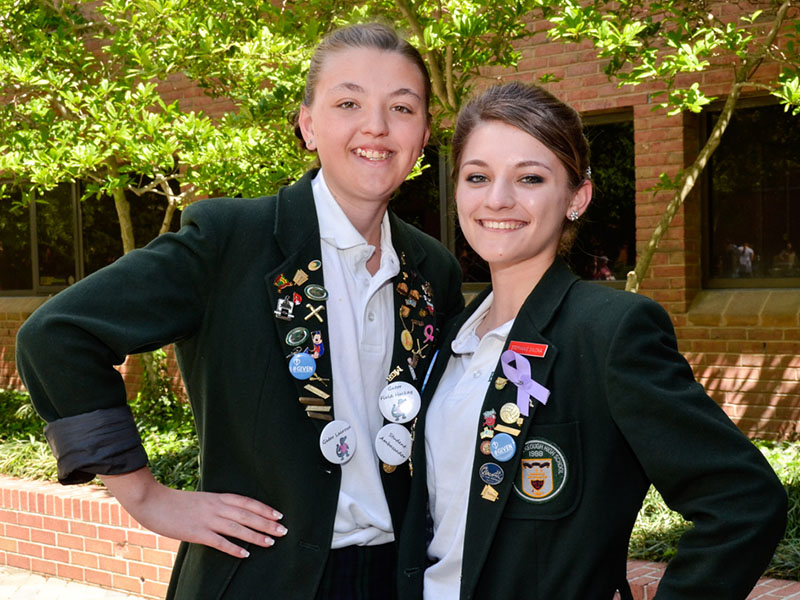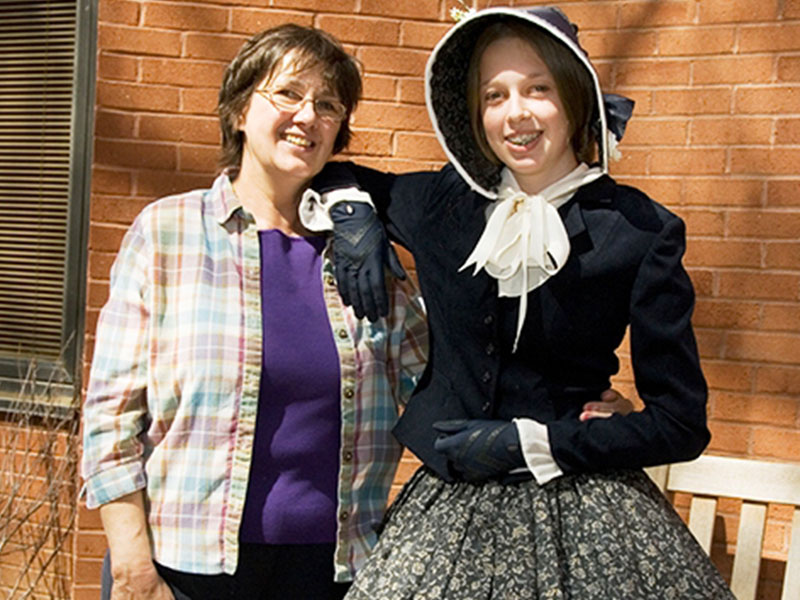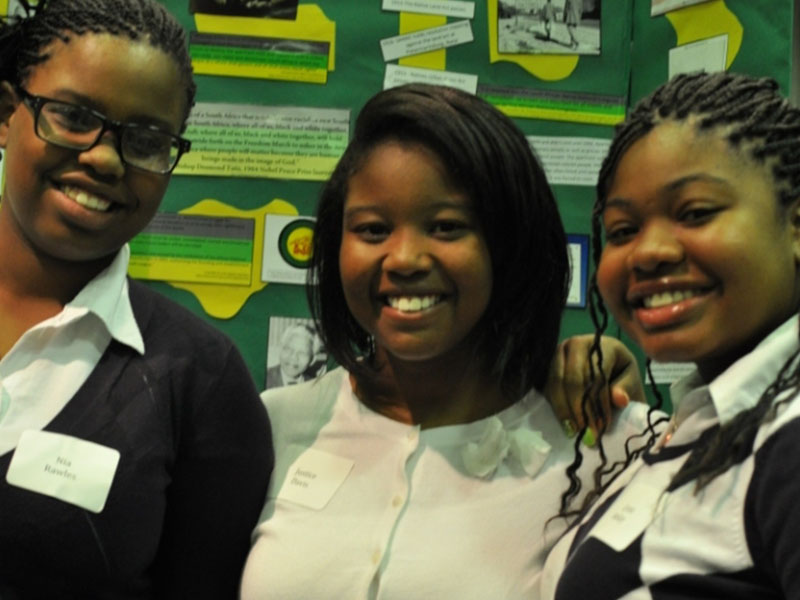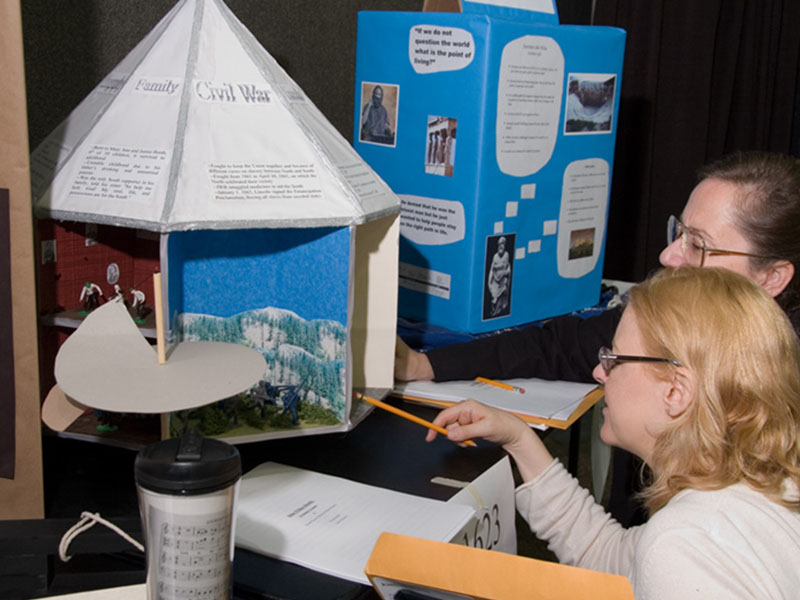Find useful websites, topic lists, and research practice modules on the Maryland History Day student resource pages.
- Partner Resource Links
Need a topic? Here are some lists and resources from museums and libraries in Maryland and Washington D.C.. Many of these sites welcome you to come for a research day or to schedule an appointment for research.
Maryland History Day Research Prompts
The White House Historical Association
Enoch Pratt Free Library: Maryland State Library
Maryland Center for History and Culture
- Finding Sources
Who? What? When? Where? Why? How?
These are six questions you should be asking yourself as you conduct your research. Answering these questions will help you develop your thesis.
A thesis statement is a summary of the main purpose of your project. It explains what you believe to be the impact and significance of your topic in history, and it demonstrates how your topic connects to the National History Day theme. A good thesis statement is specific and does not include generalizations.
Great thesis statement: Child labor laws of the early 1900 broke barriers to rights and protections from exploitation and set precedents for later workplace protections.
Good thesis statement: Child labor laws in the early 1900s were necessary in order to protect the human rights of children.
Bad thesis statement: I am going to tell you about child labor laws.
Primary and Secondary Sources
The basic definition of a primary source is material written or produced by a participant in, or an eyewitness to the event being investigated. Examples are diaries, letters, images, music, historic sites, autobiographies, or other items created during the time of the event. A secondary source is a book or article written by an author who was not an eyewitness or participant in the historical event. Examples are textbooks, encyclopedias, biographies, and other things written after the event occurred.
Where can students go to find primary and secondary sources?
Libraries, museums, archives, and historical societies are the perfect place to start. The staff at these cultural institutions are eager to help students like you!
If you do not have access to such places in your community, there are great online resources, including the National History Day website or the Maryland History Day Facebook page.
- Digital Maryland
- The Library of Congress
- PBS Learning Media
- Maryland Center for History and Culture
- Maryland State Archives
- National Archives
- US Holocaust Museum
- Colonial Williamsburg
- National Park Service
- Smithsonian Institute
- Reginald F. Lewis Museum of Maryland African-American History and Culture
- Heart of the Civil War Heritage Area Education PortalThe State Library Resource Center at the Enoch Pratt Central Library
- Digital Public Library of America
- The New York Public Library Digital Collections
- National Library of Medicine
- Sources + Citing
Citations, Annotated Bibliography, and Process Paper
National History Day requires that citations be formatted in Turabian or MLA style. Style guides can be found at your local library or you can consult the Purdue Online Writing Lab (OWL).
Annotated bibliographies not only show the reader the quantity and quality of your sources, the annotations inform the reader how you used your sources. Try not to only describe the source, but explain why it was important to your project. Check out the National History Day Annotated Bibliography Resource Guide! Another great resources is NoodleTools, an online platform that helps students organize resources and create their bibliography.
Making An Annotated Bibliography
The process paper is required for all categories except paper. In no more than 500 words, you must answer four questions: how you chose your topic, how you conducted your research, how you selected your category, and how your project relates to the theme. This is your chance to show the judges all the work you put into your project.
Primary and Secondary Sources
Primary and Secondary sources can be confusing! Fortunately there are many online guides to help you decide whether something is a primary or secondary source. The NHD Contest Rule book describes primary and secondary sources on page 9. A primary source is something written down by an eyewitness or someone who lived through the time period you’re researching. Primary sources can come in a lot of forms! However, articles, books, or papers written after the time period or by someone who did not experience an event is a secondary source. Interviews with someone who lived through an event are primary sources, but interviews with an expert who did not live through the time period are a secondary source.
- NHD Resources
Looking for the rule book, interview guidelines, or past projects that won at the national level? This tab has those and more!
NHD Theme Book – This changes every year for the theme. It includes a narrative that invites you to think deeper about the theme, as well as topic suggestions and articles by scholars.
NHD Rule Book – Want to know exactly how the judges do the word counts on exhibit boards? Need the details on time limits, costumes, or using the first person in papers? The NHD rule book should be first in your reading for competition details.
Guidelines for Conducting Interviews – While an interview is not required for projects, you may want to include one in your project creation. Use this page for etiquette, guidelines, and the distinction between primary and secondary sources.
Project Examples – These examples, while not the only way to success, may give you some inspiration or help you see how other students have created their project.
Ask The Expert! – NHD Produced this series with NEH researchers, giving tips and tricks for categories and creating your project. See what they say!
Creating the Annotated Bibliography – If it’s your first time or your fifth, creating a bibliography is difficult! Keep this guide handy while you’re writing your entries and annotations.
- Webinars
Research in Action Student Series
The Research in Action series takes a deep dive into major topics in History Day, from constructing a thesis and bibliography to researching in archives and conducting oral histories. Hear from professionals on these topics!
Five Common Critiques of History Day Projects
In part of our live session, Using Feedback to Improve Your History Day Project, Maryland History Day outreach staff discussed five common critiques that students often get from judges and teachers about their projects. We offer some strategies for improving your project based on that feedback.
Doing Secondary Source Research Online
This webinar gives History Day students tips for finding reliable secondary sources on the internet and how to search for sources effectively online.
Keeping Track of Your Research: Note-Taking and the Bibliography
This webinar from Maryland History Day staff discusses tips and methods for note-taking and how to write the annotated bibliography for your History Day project.
Using National Archives Primary Sources for History Day
In this History Day support session, Andrea Reidell of the National Archives showed us how to find primary sources on https://www.docsteach.org and how to look for the different perspectives a primary source can reveal.

